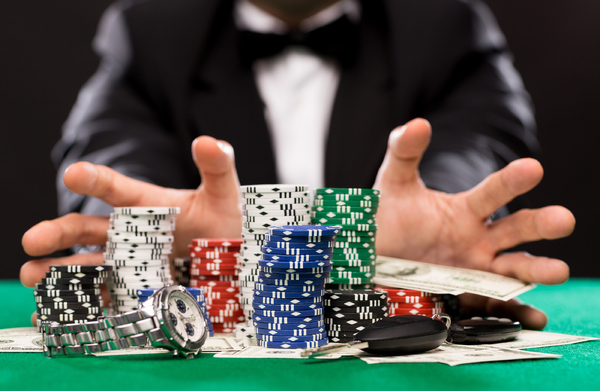Oregon #8 in the U.S. for Gambling Addiction

Oregon is known for its beautiful coastline, farm-fresh food, and a blossoming art scene. However, a recent study by WalletHub has found that Oregon is known for something else as well. The state ranks #8 in the United States for gambling addiction.
Gambling addiction is a serious mental disorder and shares characteristics with substance addiction. It can even be a co-occurring disorder for somebody battling alcoholism or drug abuse. Below is a comprehensive guide for Oregon residents to understand gambling addiction and learn more about treatment options.
Similarities Between Gambling and Substance Addiction
First, it’s important to grasp what constitutes an addiction. There is a group of circuits in the brain that regulate pleasurable feelings, whether they come from food, sex, drugs, or gambling. These feelings are brought on by the release of the neurotransmitter dopamine, which binds to its own set of receptors in the brain.
When a dopamine rush is particularly intense, the brain tries to protect itself by shutting down dopamine receptors. This means that the next time you experience a rush or a ‘high’, it is less intense. You need more and more of the substance or activity in order to get the same experience.
When chasing that rush becomes compulsive, it is considered an addiction. Now understood to be a chronic brain disorder, addiction has other important characteristics that are similar in both gambling and substance abuse.
Tolerance occurs as the dopamine receptors in the brain are shut down as a means of protection. This results in an addict needing more of the substance in order to achieve the same ‘high’ or rush of excitement.
In substance abuse, this usually translates into the user taking higher doses of their chosen drug, or moving on to using stronger drugs altogether. Similarly, gambling addicts may find themselves having to gamble with more and more money or seek out ‘higher stakes’ situations in order to reach the same level of excitement.
Withdrawal occurs when addicts attempt to stop or cut down on their behavior. It can manifest in both mental and physical symptoms and makes it extremely difficult for users to beat their addiction on their own. An inability to stop or cut down signals a loss of control, another red flag associated with addiction to both gambling and drugs.
Consequences of Gambling Addiction
Both drug users and gambling addicts find that over time their relationships begin to strain. Concerned family members often have a clearer perspective about the addict’s behavior, and can recognize early on that there is a problem.
Potentially serious effects on significant relationships and personal finances exist in any addiction, as the addict begins to prioritize his or her addiction over everything and everybody else. Losing the ability to manage one’s finances effectively is another aspect of addiction, especially prevalent in gambling disorders.

Problem Gambling and Co-Occurring Disorders
Co-occurrence is when mental illness is accompanied by an addiction disease. Gambling could be accompanied by a number of co-occurring factors, including:
The presence of mental illness when battling an addiction makes it difficult to find effective treatment; it requires an integrated approach to getting well that focuses on mental health as well as dealing with an addiction. If you are in Oregon and are seeking treatment for gambling, help is available through Oregon Problem Gambling Resource and the Oregon Health Authority’s Problem Gambling Service.

If you are looking for a holistic, integrated treatment plan to battle your addiction to drugs or alcohol co-occurring with a gambling addiction, The Recovery Village Ridgefield is here to help. Join us in our mountain retreat to experience the healing power of nature, and get back in touch with the real you. Click to learn more about admissions today.




